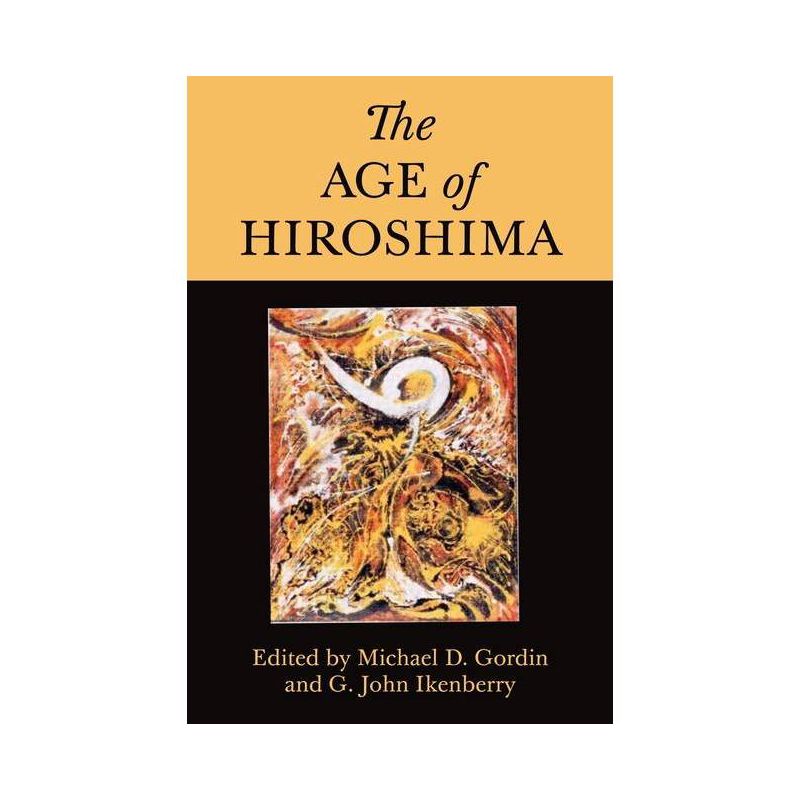Sponsored
The Age of Hiroshima - by Michael D Gordin & G John Ikenberry
FormatPaperback
Create or manage registry
Sponsored
About this item
Highlights
- A multifaceted portrait of the Hiroshima bombing and its many legacies On August 6, 1945, in the waning days of World War II, the United States dropped an atomic bomb on the Japanese city of Hiroshima.
- About the Author: Michael D. Gordin is the Rosengarten Professor of Modern and Contemporary History at Princeton University.
- 448 Pages
- History, Military
Description
Book Synopsis
A multifaceted portrait of the Hiroshima bombing and its many legacies
On August 6, 1945, in the waning days of World War II, the United States dropped an atomic bomb on the Japanese city of Hiroshima. The city's destruction stands as a powerful symbol of nuclear annihilation, but it has also shaped how we think about war and peace, the past and the present, and science and ethics. The Age of Hiroshima traces these complex legacies, exploring how the meanings of Hiroshima have reverberated across the decades and around the world. Michael D. Gordin and G. John Ikenberry bring together leading scholars from disciplines ranging from international relations and political theory to cultural history and science and technology studies, who together provide new perspectives on Hiroshima as both a historical event and a cultural phenomenon. As an event, Hiroshima emerges in the flow of decisions and hard choices surrounding the bombing and its aftermath. As a phenomenon, it marked a revolution in science, politics, and the human imagination--the end of one age and the dawn of another. The Age of Hiroshima reveals how the bombing of Hiroshima gave rise to new conceptions of our world and its precarious interconnectedness, and how we continue to live in its dangerous shadow today.Review Quotes
"The Age of Hiroshima is a unique and innovative collection of original articles that together brilliantly make the point that the atomic bombings of Hiroshima and Nagasaki created a new international order with new dangers and new ways of thinking. There is no better text to help students understand the profound influence of nuclear weapons on the global environment. It should be required reading in every history and political science curriculum."--Martin J. Sherwin, Pulitzer Prize-winning historian, author of A World Destroyed: Hiroshima and Its Legacies
"This impressively broad and richly interdisciplinary book explores the evolving legacies of Hiroshima across the globe and over time. It is essential reading for those who study our nuclear past, present, and future."--Elizabeth N. Saunders, Georgetown University
"This important book deftly examines the wide range of meanings attached to the atomic destruction of Hiroshima in August 1945. Gordin and Ikenberry bring together some of the very best scholars writing about nuclear weapons and nuclear energy today."--Scott D. Sagan, author of The Limits of Safety: Organizations, Accidents, and Nuclear Weapons
About the Author
Michael D. Gordin is the Rosengarten Professor of Modern and Contemporary History at Princeton University. His books include Five Days in August: How World War II Became a Nuclear War (Princeton). G. John Ikenberry is the Albert G. Milbank Professor of Politics and International Affairs at Princeton and a Global Eminence Scholar at Kyung Hee University in Seoul, South Korea. His books include Liberal Leviathan: The Origins, Crisis, and Transformation of the American World Order (Princeton).Additional product information and recommendations
Sponsored
Similar items
Loading, please wait...
Your views
Loading, please wait...
More to consider
Loading, please wait...
Featured products
Loading, please wait...
